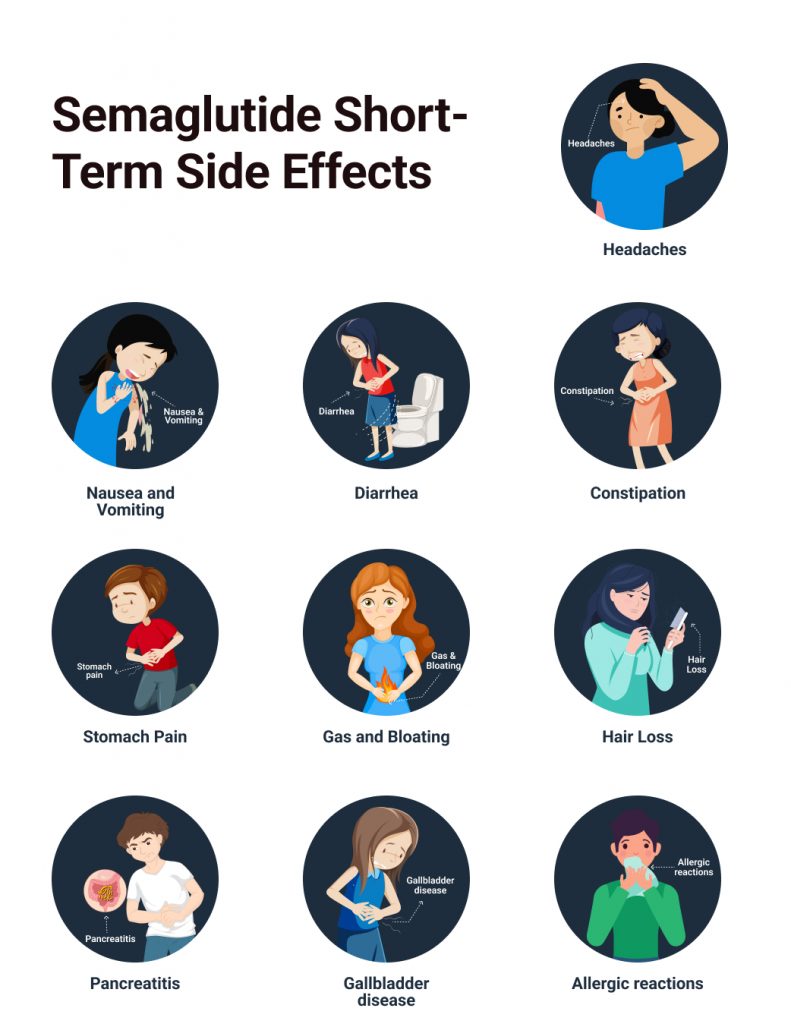Semaglutide is known for its benefits, but let’s face it, it has its side effects too. With the effect of weight loss, it brings some short-term and long-term side effects. Originally given to type-2 diabetes patients, it is popular to manage weight.
Let’s explore more about its effects in this article.

Semaglutide and Its Benefits
Semaglutide helps in controlling weight by lowering digestion. It gives the feeling of fullness for a longer time as it mimics the naturally occurring hormone GLP-1. It also regulates blood sugar levels.
Semaglutide Side Effects Chart
Side-effects of semaglutide
Semaglutide medication can have mild short and long-term side effects, such as:Semaglutide Short-Term Side Effects
- Headaches: While headaches are not directly linked with semaglutide, the dosage causes an empty stomach for long periods of time, which may cause headaches.
- Nausea and Vomiting: The feeling of vomiting and nausea are common side effects of semaglutide dosage.
- Diarrhea: It is another common side effect of semaglutide that can get worse with fatty or fried foods.
- Constipation: Hard stool can be a side effect in some cases. This issue can get better with time.
- Stomach Pain: Mild stomach pain can be caused by its dosage. This effect will fade away with time.
- Gas and Bloating: Similar to other side effects related to the stomach, you may experience gas and bloating.
- Hair Loss: Shedding of hair due to the effect of semaglutide is seen in many cases.
- Pancreatitis: Although it is rare, there is a possibility of this side effect with semaglutide. This can be a life-threatening medical condition that needs immediate medical intervention.
- Gallbladder disease: It is uncommon to have gallbladder stones, but it can be a possibility with the dosage.
- Allergic reactions: There could be some allergy associated with the semaglutide. Consult your doctor immediately if you find something unusual, like short breaths, itching on the skin, a sore throat, or swelling on the face after taking the medication.


